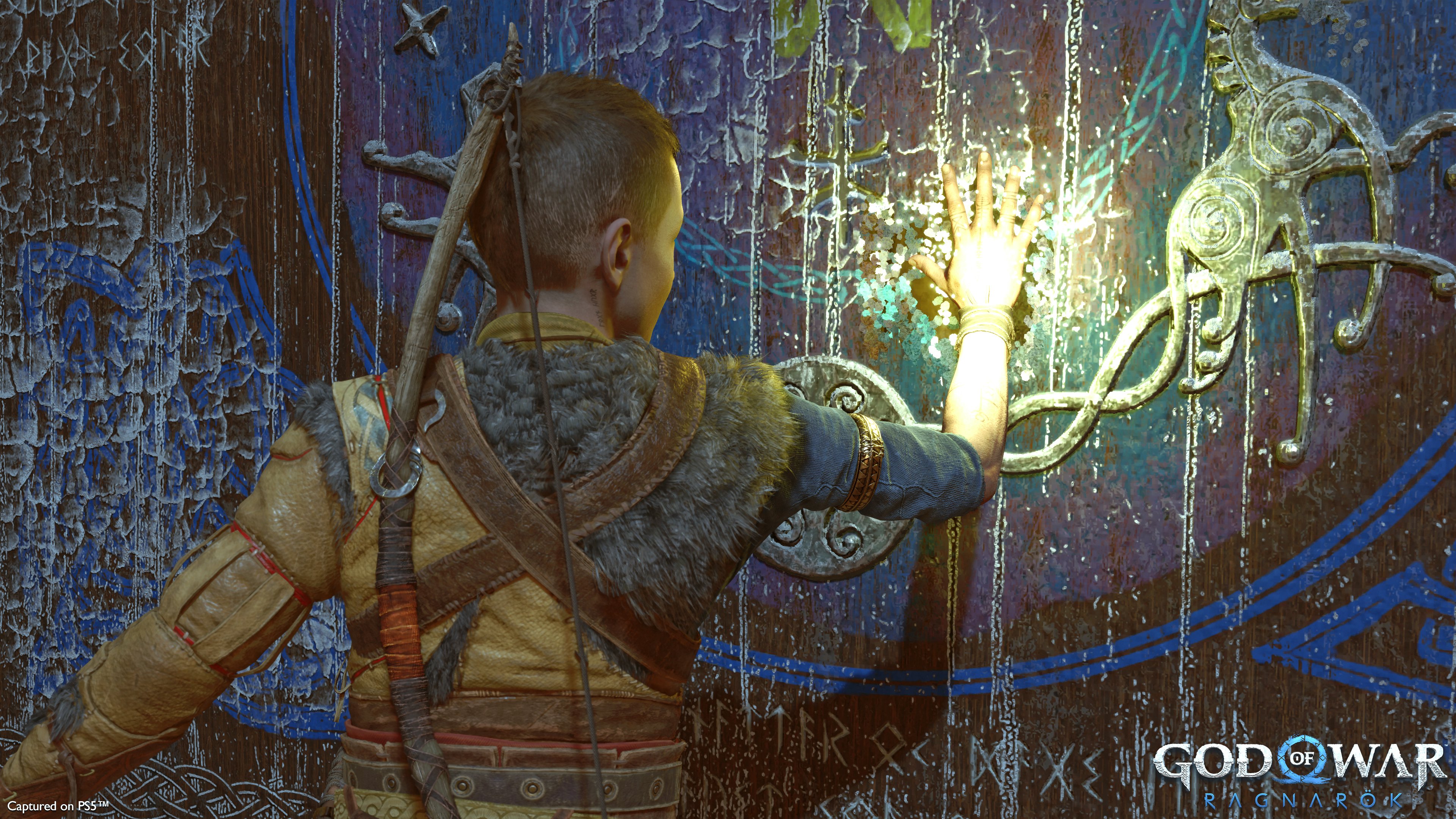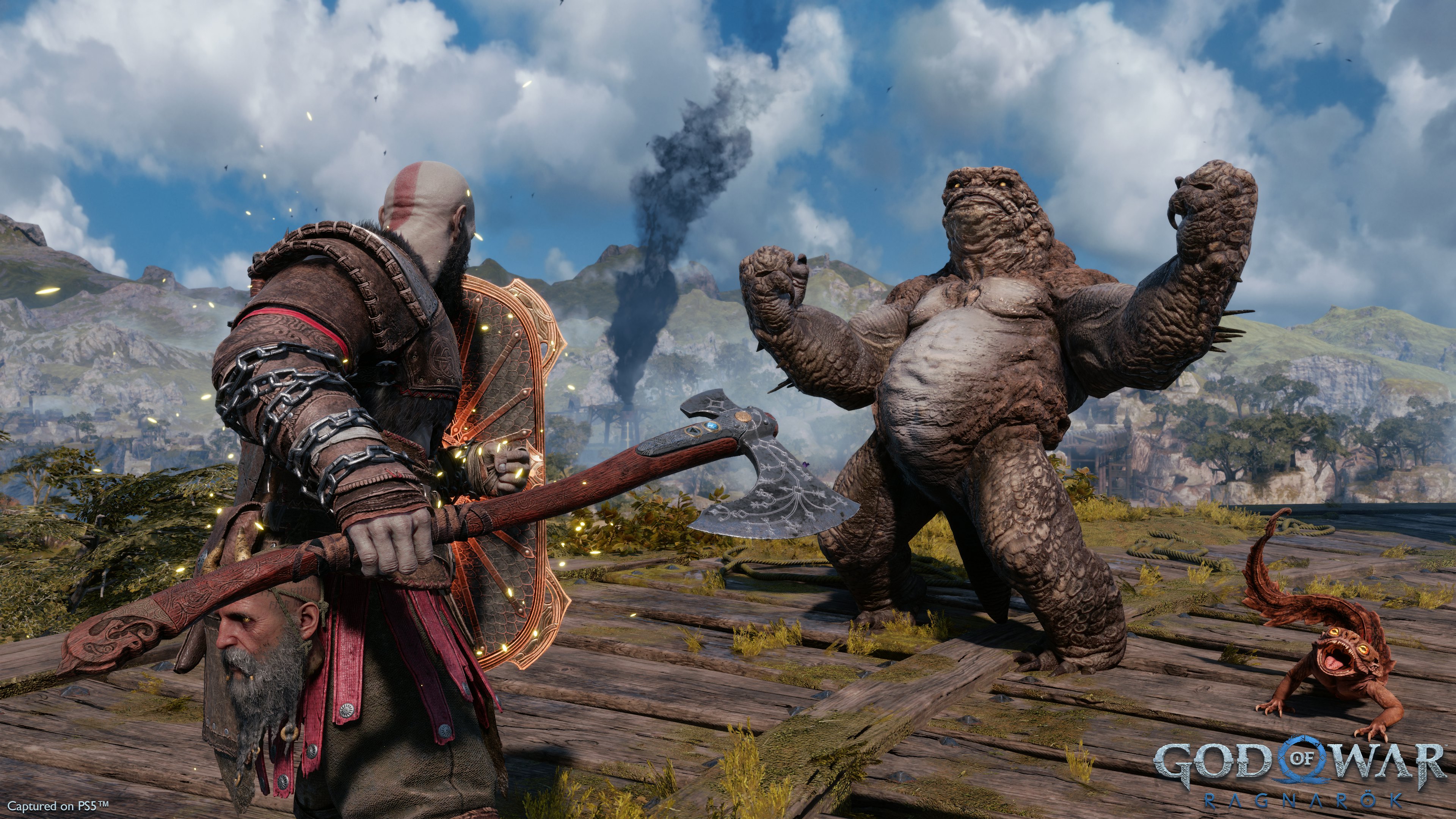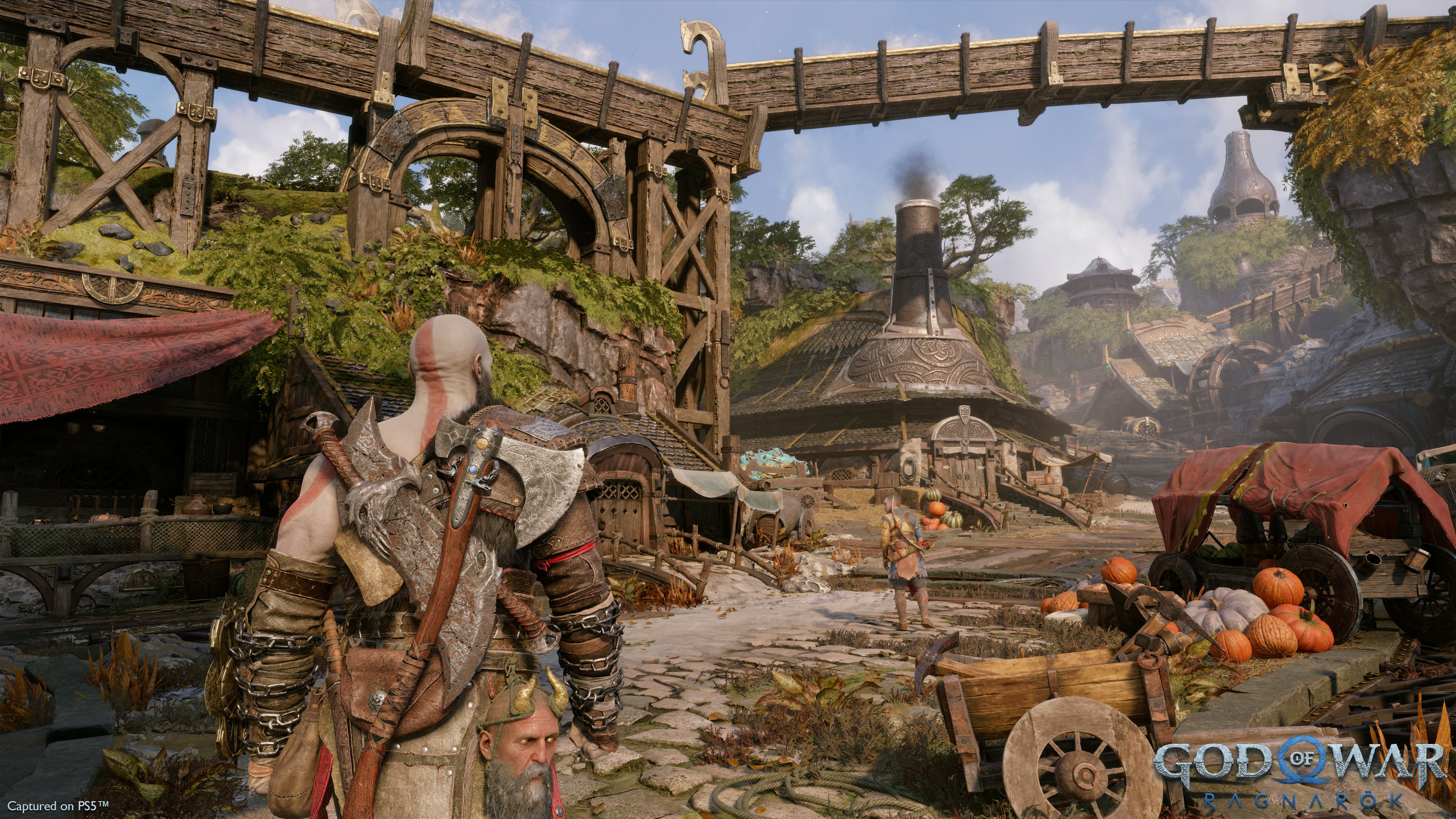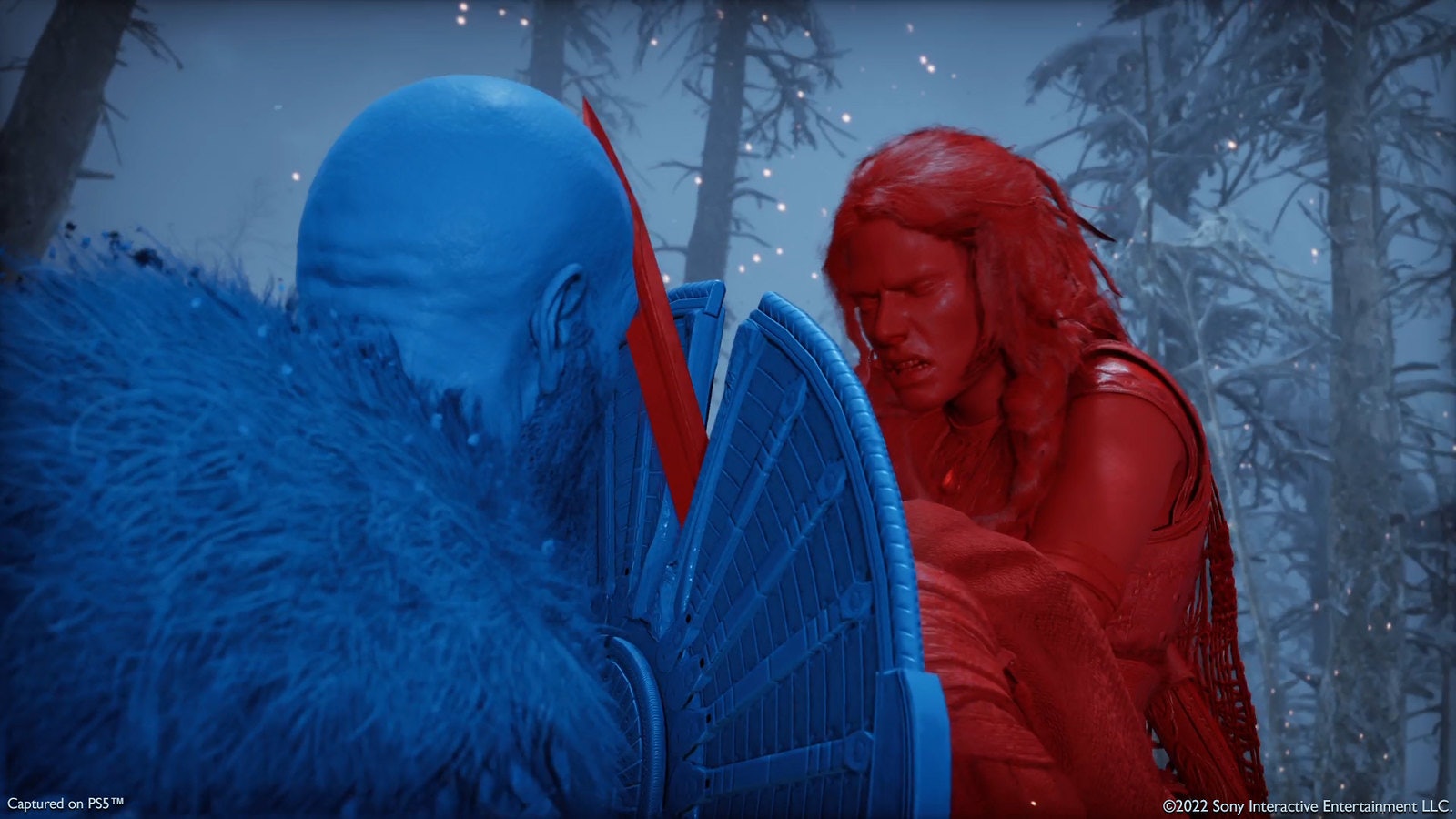
Game studios rarely share the secrets of their success.
A great game can spawn countless imitators — look at Breath of the Wild or Stardew Valley — and it’s all but unheard of for a company to tell its competitors the magic formula. But accessibility is increasingly becoming a notable exception to that rule.
God of War Ragnarok — a continuation of the 2018 adventures of the grizzled warrior Kratos and his tween son Atreus, and the ninth installment of a venerable PlayStation franchise — is the most accessible game in the series yet. To help make that vision a reality, the team at Santa Monica Studio turned to the folks at Naughty Dog, known for its boundary-breaking innovations for players with auditory, visual, and motor differences.
In keeping with that spirit of open collaboration, Lead UX Designer Mila Pavlin says the team at Santa Monica Studio isn’t interested in keeping the 70+ accessibility innovations in God of War Ragnarok a secret.
“Accessibility has a very unique place when it comes to cross-collaboration because it is the one set of features where we want that innovation to spread. We don't want to contain that just to one franchise,” Pavlin tells Inverse.

“If we can develop a feature and then someone else were to implement a very similar feature based on our work, that would be a bonus to the player overall. That's something that we want to encourage, that the community for accessibility is sharing that information,” she adds. “Accessibility is for everyone. It's not a race. Regardless of who comes out with a feature first, the player is really the winner at the end.”
Like the rest of the gaming world, Pavlin and the team at Santa Monica Studio were impressed by Naughty Dog’s groundbreaking innovations for 2020’s The Last of Us Part II, which includes a broad suite of tools to customize the experience to an individual’s preferences and needs. Ragnarok was already well into development at that point. Still, the team was eager to incorporate some of those innovations into the next God of War game. Naughty Dog was happy to oblige.
“They shared information about consultants they had brought in and players they had consulted with. We were fortunate enough to have one of their team members join our team as an accessibility designer, which especially helped us with some of the motor functions and many of the combat accessibility items. It gave us a direct connection into the accessibility community,” Pavlin says.

God of War Ragnarok’s accessibility features encompass four main areas: hearing, motor, cognitive, and vision. Notably, the game builds upon the high-contrast visual mode pioneered in TLOU 2, allowing players to assign more than a dozen brightly-colored filters to more easily distinguish between enemies, treasure chests, NPCs, and bosses. Pavlin says the depth and breadth of those options in Ragnarok were directly inspired by player feedback.
“Players were telling us what they wanted, as opposed to us deciding on these things,” she explains. “There's a statement in the accessibility community, ‘never about us without us.’ We really took that to heart.”
“That is a hand-done, hand-written, hand-tailored kind of experience.”
The goal wasn’t simply to make Ragnarok easier, but to make it more enjoyable for more players — whether this is their first God of War game or they’re seasoned veterans of grueling battles with Valkyries and trolls.
“We've had some of our low-vision players say that they wanted to play on Give Me God of War [the series’ highest difficulty], but they just had trouble understanding what was happening on screen,” Pavlin explains. “Adding features like high contrast made it approachable in a way that didn't significantly change the experience.”
Ragnarok’s suite of accessibility options also includes a host of quality-of-life tweaks many players could benefit from, like automated item pickups and customizable subtitles. This philosophy of helping players have the best experience possible is baked into the game in more subtle ways, too.

For instance, if you spend a bit of time bumbling to find a solution to a puzzle, one of your companion characters will offer a clue, like “maybe you should try your axe.” Better still, if you notice a conspicuous object that’s just begging to be tinkered with, those same companions will flat-out tell you “we should come back later” rather than let you bang your head against the wall for half an hour.
These kinds of additions aren’t settings that can be turned on or off. Each situation needs to be individually produced and scripted, which is a massive undertaking for something that may be a boon to series newcomers, but longtime fans might never notice.
“We don't want to contain that just to one franchise.”
“What we're trying to do is create an experience where you can organically learn things and experience that world, so as you become more confident, we can step back a little bit and let you go wild,” Pavlin says. “That is a hand-done, hand-written, hand-tailored kind of experience. That's one of the things that makes the game so great, the love and care that has gone into this.”
Making Ragnarok approachable to more players also demanded a dramatic rethinking of some core mechanics from the 2018 game. The team scrapped and rebuilt the entire user interface to accommodate larger text sizes, and reworked the control scheme to allow for button remapping. The team also built in more flexibility for “flavor moments” like quicktime events and traversal, adding options for fewer button inputs where the team felt it didn’t detract from the experience.
Pavlin hopes all of those changes will add up to a game more players can love.
There are a lot more people who are able to play Ragnarok now than were able to play the 2018 game,” she says. “I think the expansion of accessibility is really going to surprise people.”
God of War Ragnarok comes to PlayStation 4 and PlayStation 5 on November 9.







